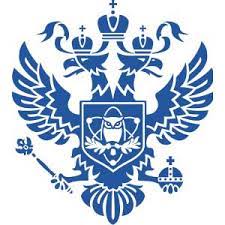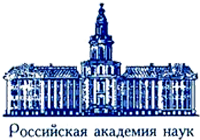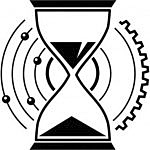| Programme Committee | Keynote speakers | Registration | Submission | Agenda | Partners | History |
2022 International Workshop
High Technologies History and Development
Before the opening of the Workshop
Moscow, November 8, 2022
Dear Colleagues!
The International Workshop "High Technologies History and Development" (HISTHIGHTECH-2022) is one-day scientific event,
which will be held on November 8, 2022 in Moscow.
The workshop main topic is High Technologies
and their impact on the development of society: origins, history of development, current state, prospects. Our workshop aims is to get
a comprehensive picture of the development of such technologies, their application and distribution. The forum is intended to become
a bridge between the present, the past and the future. History and modernity. A look into the future.
This year the workshop will be held in a hybrid mode with a limited number of participants in-person.

Conference Commitees
Conference Chair
Roman Fando, Director of Institute for History of Science and Technology RAS
Program Committee, Chair
Yuri Baturin, Corresponding Member of the Russian Academy of Sciences
Organizing Committee, Chair
Sergei Prokhorov, Chair of IEEE Computer Society Russian Chapter
Submission
We invite you to present the results of your work at the workshop by preparing and sending abstracts.
Original articles in English and Russian on the relevant topics of the workshop, not previously presented at other conferences,
are accepted for review.
The volume of abstracts is 1 page of text in the interval 1.5.
The authors of articles that received positive feedback from reviewers will be able to speak at the workshop, and the articles themselves
will be recommended for publication in English in the workshop proceedings "Proceedings of the International Workshop
on High Technologies History and Development".
Abstracts are submitted via the online system
EasyChair.
Articles in English with a volume of 3-8 pages are drawn up in accordance with the requirements
IEEE Manuscript Templates
The title of the article is size 14! The instructions mistakenly say 24: Upper and lower margins of at least 2 cm.
Key dates
Abstract Submission Date: October 17, 2022
Notification of Acceptance Date: October 21, 2022
Paper Submission Date: October 31, 2022
Final Paper Submission Date: Novemver 15, 2022
Agenda
November 8, 2022, opening conference at 11:00 a.m.
|
Roman A. Fando (Institute for History of Science and Technology RAS). Information technologies available to historians of science Historians of science, like other scientists whose results of scientific activity can be described in the language of mathematics and modeling, began to use computers in their professional activities almost immediately after their appearance. In Russia, the Institute for the History of Science and Technology of the Russian Academy of Sciences was one of the first research centers where IT was used to solve problems in history and science. Yuri M. Baturin (Institute for History of Science and Technology RAS). We live in a Cyberspace invented by Writers Having come a long way along the road of information and technological development, we find ourselves in a cyberspace previously invented by writers, but we have not noticed it. Technicians are dismissive of the humanities' ability to drive scientific and technological progress. And they are wrong. Leonid I. Borodkin (Lomonosov Moscow State University). The evolution of virtual reality technologies in historical and archaeological applications The evolution of virtual reality technologies in historical and archaeological applications. The history of the emergence and development of virtual reality technologies in historical and archaeological research is analyzed from the early 1990s to the present day. These technologies are considered both in the context of research projects for the three-dimensional reconstruction of cultural and i ndustrial heritage and for educational purposes (to create immersive effects). Giovanni A. Cignoni (University of Pisa), Sergei P. Prokhorov (Institute for History of Science and Technology RAS) Rebuilding of the Very First Soviet Computer M-1 as part of an Interactive Museum Project – First Steps A project for the reconstruction of the first Soviet computer M-1 is presented. The project provides for the creation of a virtual interactive museum M-1, which will become part of the international project "The IEEE Global Museum". Alexander A. Menn (Institute of Control Sciences RAS), Bozidar Radenkovic (Belgrade University), Sergei Prokhorov (IHST RAS). HRS-100 creation and application history HRS-100 creation and application history The report is devoted to the history of the implementation of a successful Soviet-Yugoslav project—the creation of a hybrid computing complex HRS-100, which was successfully used to solve complex problems, in particular, control of aircraft landing on the deck of a ship in a situation of heavy seas, controlling autonomous robots, as well as in other studies. Andrey V. Morozov (Lomonosov Moscow State University). History of Legal Informatization in Russia History of Legal Informatization in Russia Legal informatization in the USSR started in the 1970s on the basis of the Unified Computing System. In 1991 it was transferred to the VAX supercomputer. In 1993 a legal information database was created on personal computers that could be updated through communication channels. Soon the whole information resource was placed on the IBM AS-400, which in 1996 withstood the first serious DDOS attack. Anna S. Zueva (Lomonosov Moscow State University). Experimental Testing of Regulations for AI-systems in Russia (using drones and unmanned vehicles as examples) Experimental Testing of Regulations for AI-systems in Russia (using drones and unmanned vehicles as examples) A brief history of digital sandboxes used in Russia for testing solutions in the field of artificial intelligence systems for drones and unmanned cars is discussed. It is shown that the mechanism of regulatory sandboxes is an effective response to today's challenges of advanced information technology development. |
Organizers & Partners
 |
 |
 |
 |
 |
Venue
Institute for the History of Science and Technology RAS
Moscow, Baltiyskaya 14
11:00, November 8, 2022